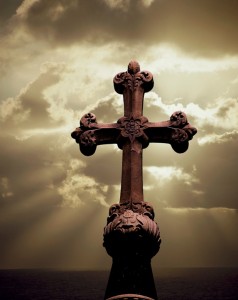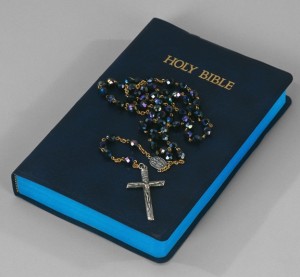Egyptian Christians’ Excitement
By Ken Walker-
Without a doubt, one of the most fascinating features I have ever worked on is the cover story I wrote for the June issue of Charisma, titled “Out of Egypt.”
In it, I detail the amazing moves God is making in that troubled land despite the persecution and oppression of Christians there by the Islamic-influenced government. With the appointment in May of two more cabinet ministers who are part of the Muslim Brotherhood, the situation isn’t likely to change soon.
Renewal amid Adversity

One example is attendance at Kasr El Dobara, the largest evangelical church in Cairo. Over the past three years the numbers have swelled from 700 to crowds that sometimes overflow its 2,500-seat sanctuary.
“The numbers of people are multiplying,” church spokesman Fazil Khalil told me during a trip to the U.S. “They are coming from every side and every background—people we are not accustomed to seeing, people seeking God.”
The pastoral assistant and others involved in outreach to the Middle Eastern nation also report an increase in prayer movements and interdenominational unity. That excites them in the midst of dire predictions of political unrest capsizing Egypt.
“Historically, we know that every time there is political chaos and uncertainty anywhere in the world, we always see the true church experiencing true revival,” says Shaddy Soliman.
An Egyptian native who regularly returns to his home country, Soliman is now the pastor of an intercultural congregation just north of Orlando, Florida.
After a visit last summer during the swearing-in of Mohamed Morsi, the nation’s first democratically-elected leader, Soliman reports a willingness of more Muslims to attend Christian worship services or watch them on television.
“I’m not saying that they’re not risking a lot to do this, but I am saying this is a new era,” he says. “It’s greater than ever before, simply because this is the generation of Ishamel. These are the people the Bible talks about, who will receive the message that lasts.”
What We Can Learn

That is why we can learn so much from a people who represent just 13 percent of the population in their country. Things like:
- Graciousness in the face of adversity.
Egyptian native Father Joseph Boules, who oversees a Coptic Orthodox Church in Southern California, recalls the terrorist bombing of a Coptic congregation on New Year’s Day of 2011.
Since it took place a week before the Orthodox celebration of Christmas, many feared the attack would cut turnouts for those services. Instead, they doubled, a remarkable show of faith since attendees didn’t know if they would face martyrdom.
“It was just another day of Copts living in Egypt where we are attacked,” Father Boules says. “We don’t react in any illegal way. We don’t carry weapons or condone burning of the Qur’an or mosques or anything like that.”
- How hard times can produce revival.
Many lament the economic downturn of the past six years. Indeed, it has had quite a negative impact on my work. Yet we cannot let temporary circumstances govern our eternal outlook.
“If we could learn one thing from the Christians in Egypt right now, it’s to seek God, cry out to Him and live according to His Word,” Soliman says. “Our hope needs to be in the kingdom of God, not political systems or loyalty to the nation.”
- The common ground Christ’s followers share no matter where we live.
Khalil points out that events in Egypt show how much the body of Christ needs each other.
“When we see what’s been going on and how Egyptian believers are now working with one another, it shows how we can come together as one, from different backgrounds and different languages,” he says.
In other words, there really is one Lord, one faith and one baptism.



